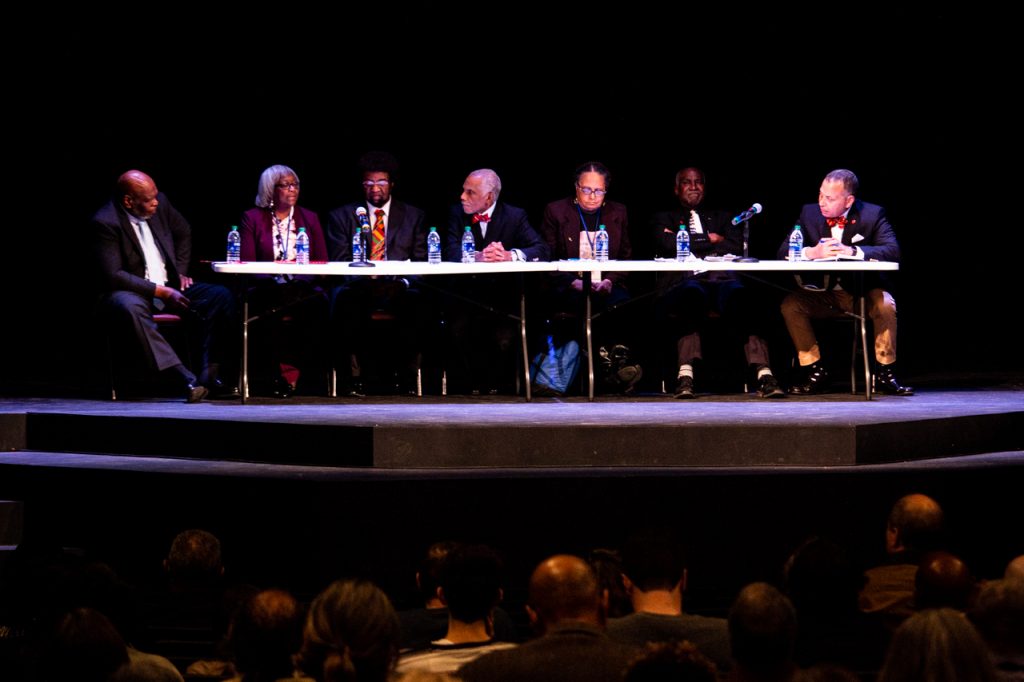
In 1970, Fulton Chapel was the setting of a peaceful protest that resulted in major changes to the university and the suspension of eight students, now known as the Ole Miss Eight. Five of the students — Henriese Roberts, Kenneth Mayfield, Donald Ray Cole, Theron Evans Jr. and Linnie Liggins — joined Ralph Eubanks and the lawyer who represented them, on Monday to discuss the historical implication of their suspensions.
“It was an opportunity to shed light on important issues,” Liggins said.
The majority of the university’s population was white, and the school’s black population of just under 200 people faced frequent, overt racism on campus.
A lack of social equality and representation fueled members of the Black Student Union (BSU) to protest on campus.
Katherine Aberle-Flores, a Southern studies graduate student, directed “Black Power at Ole Miss,” a documentary that was screened Monday night. Her film told the stories of a handful of students who were arrested that day.
Mayfield described his experience during this time at the university.
“We’d study, go to class and then start protesting,” he said.
Mayfield said they knew this would be the only way to get the administration and student body to listen to their demands.
A few of their 27 demands — which they gave to then-Chancellor Porter Fortune — included: a presence of African American faculty, abolition of the Confederate flag as a booster symbol and a minimum wage for employees.
Roberts, Mayfield, Cole, Evans and Liggins agreed that the Black Student Union was motivated to achieve equality on campus for all future generations of African American students who enroll at the university. 50 years later, they are still advocating for change.
“We live in a caste system,” Roberts said. “Our children are tracked for mass incarceration. I think it’s a problem that we need to learn to communicate about. We need to strive to build a better community.”
Eubanks, who wrote an article for The New Yorker this week about the protests, moderated the panel. To conclude, Eubanks asked each of them to tell the audience what they would tell future African American students at the university.
Evans shared a story about his father’s influence on his perseverance. For Evans’s father, an education provided something that could not be taken away.
Mayfield received his law degree and practiced as a civil rights lawyer.
Cole earned his doctorate in mathematics from the university and had returned to campus as a professor and assistant provost. He retired last year, after 21 years of service.
Though Evans’s father never received a full education, he said, “If you get an education, then they can’t deny you.”
Though Liggins completed all of the credits for her bachelor’s degree at the time of her suspension, the university would not give her a diploma. Fifty years later, Liggins finally received her diploma outside of Fulton Chapel on Tuesday.
























